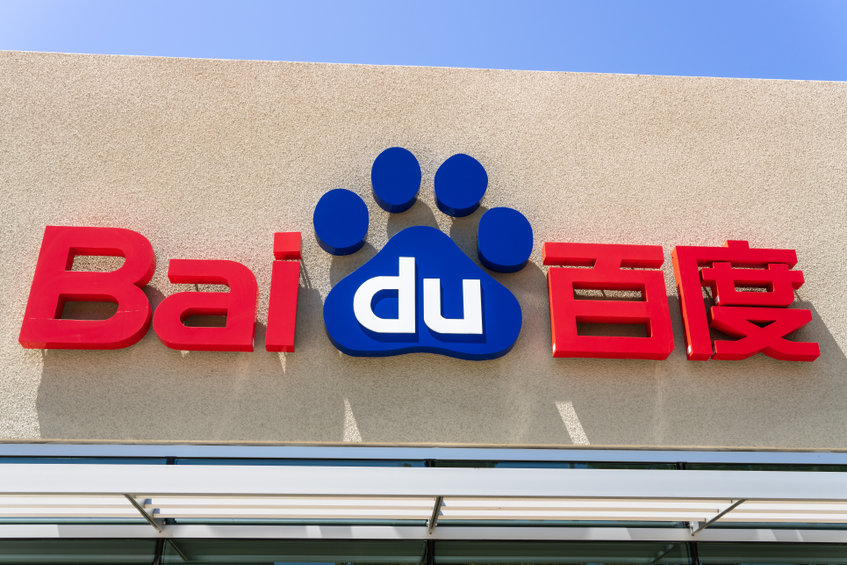On Wednesday, shares of Chinese tech giant Baidu Inc. (NASDAQ: BIDU) surged 2.66% following an announcement by Beijing authorities supporting the integration of robotaxis into ride-hailing and car rental fleets.
This progressive step, first reported by Bloomberg News, marks a significant leap towards urban mobility innovation. Baidu’s robotaxi service, Apollo Go, already a familiar name in Wuhan, is spearheading this initiative, promising to roll out about 1,000 units this year alone.
AI growth
With Apollo Go nearing financial break-even—expected by the end of 2024—the trajectory towards profitability by 2025 paints a promising picture of Baidu’s strategic advancements in autonomous driving.
However, this isn’t the only area where Baidu is making waves. The Chinese tech behemoth recently unveiled its latest AI marvel—Ernie 4.0 Turbo—at its Wave Summit in Beijing.
This new iteration of Baidu’s AI model not only enhances performance but also expands the capabilities of its predecessor, promising faster response times and improved accuracy.
This innovation comes at a crucial time, as Baidu’s Ernie Bot has grown its user base to a staggering 300 million, showcasing the company’s robust foothold in the AI sector.
Despite these technological advancements, challenges loom large due to the U.S. government’s stringent chip export restrictions, which have throttled the growth of China’s AI sector. This restriction has forced major players like Baidu to navigate a tightrope, balancing innovation with resource allocation.
Financials and analysts’ views
On the financial front, Baidu’s recent earnings reports reflect a mixed bag. While there has been a modest uptick in online marketing revenues, growth remains tepid, with only a 3% increase year-over-year in the first quarter of 2024.
This slow growth is partly attributed to weak ad growth and the impact of global economic pressures on small and medium-sized enterprises—a core demographic for Baidu’s ad revenues.
Analysts from Morgan Stanley have taken note of these challenges, adjusting their ratings from ‘Overweight’ to ‘Equal-weight’ and trimming the price target from $140 to $125. They cite limited catalysts in the near term that could significantly pivot the stock’s performance.
Valuations
Amidst these fiscal ebbs and flows, Baidu’s stock valuation paints an intriguing picture. Currently trading at low single-digit P/E and P/FCF multiples and at a discount to its book value, Baidu’s valuation seems overly conservative.
Such valuations are typically earmarked for companies facing dire operational backdrops, yet Baidu’s fundamentals, with a strong grip on the Chinese internet search market and expanding ventures in AI and cloud services, suggest a resilience and potential undervalued by the market.
This valuation anomaly extends to investor sentiments, which remain cautious, underscored by a broader skepticism towards Chinese tech stocks amidst ongoing geopolitical tensions and regulatory uncertainties.
Yet, for value investors, this presents a potential upside, with Baidu’s stock appearing ripe for revaluation given its foundational strength and diversification into high-growth areas like AI and cloud computing.
Looking forward, Baidu’s strategic moves could redefine its market standing. The company is not only bolstering its AI capabilities but is also actively expanding its cloud infrastructure—a segment poised for growth despite the competitive landscape marked by aggressive pricing strategies from rivals.
This dual focus on AI and cloud services is anticipated to be a critical driver for Baidu’s revenue growth and margin expansion in the coming years.
While Baidu faces short-term headwinds from a subdued advertising market and external geopolitical and regulatory challenges, its long-term prospects appear robust.
As we pivot from a detailed analysis of Baidu’s operational and financial metrics towards technical analysis, the charts will soon reveal whether the stock’s current price trajectory aligns with its underlying business developments and future potential.
Short-term bullish momentum, support near 478
Baidu’s stock has been on an extended downtrend since early 2021 having peaked above $350 in February 2021. Though the stock has attempted a bounce back several times, it has failed to surpass previous highs.

Since March 2022, the stock has largely been trading in a $78-$162 range. At the start of this month, it was trading close to the lower end of this trading range near $85 but has appreciated considerably from that level in the last few days.
Investors who are bullish on Baidu’s prospects still have a good entry point here near the $97 level. They can consider a long position here with a stop loss at $77.6. If this short-term bullish momentum prevails, we can again see the stock moving towards $126.4 and $162 in the coming months where one can book profits.
Traders who are bearish on the stock must refrain from shorting it at current levels due to the short-term bullish momentum it is exhibiting. Fresh short positions should only be considered if the stock breaks below its recent swing low near $85.
The post Baidu’s stock climbs on Robotaxi expansion amid long-term decline: Should you Buy? appeared first on Invezz

